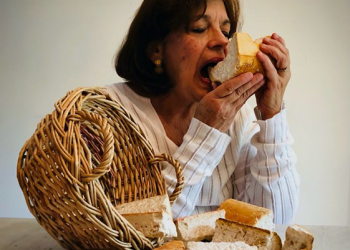In the town of Santa Maria del Rosario, located in the Havana municipality of Cotorro, everyone knows him. "There, in the house that has the San Lazaro in the front," says the first person you ask. The fact is that Ronaldo Veitia Valdivié meets like anyone else the requirements to be Illustrious Son of that municipality.
Professor Veitía, as he is known in the world of judo, received a team of reporters from OnCuba magazine a Saturday morning like someone who is waiting for a close relative. "That’s why people love him so much," says his wife Mercedes, coach’s constant companion for over 30 years and as we came to know first hand, prepares the most delicious coffee in the world. In his living room, away from a tatami, the dialogue began.
How did you get to the women’s national judo team?
As an athlete I was Cuban champion several times in my category. I participated in tours through different countries. I retired in 1973 and started working in the Antonio Maceo arena in Cotorro, then I spent a year in Mexico and the country won its first two Pan American medals in this sport. That’s why I received the Cahutemoc Prize. When I returned to Cuba I was selected to be the head coach of the Martires of Barbados EIDE (Initiation Sports School). I became a national team coach in 1986. I took the call with courage, the task was difficult. I had moments of weakness. My mother always told me that I could not give up, I had to show what I was capable of. But there were many bitter drinks. Besides, working with women always takes some getting used to.
How did Cuba get inserted in the world elite of the sport?
It was not easy because we arrived after many countries the international competitive scene. Cuba formed a national team for the first time in 1983 and for over 10 years in Europe and Asia this martial art tournaments were taking place. It took a lot of sacrifice from a large group of coaches at all levels. With total dedication of the athletes, we can call them the Marianas. Many specialists can not understand that this island is a power in judo. For example, France has around 850,000 practitioners, Japan has more than two million, and in Brazil there are a million and a half, while in Cuba we have only 1 650. Maybe this is why we always get the shorter stick when it comes to arbitration.
What have been the highlights of Veitía?
Undoubtedly, when we won the Olympics in Sydney 2000, and two world championships, one in Japan, in which we went to beat them at their own game. I always remember the Olympic medals of any color, we have been in six Olympics, and in four we won one at least.
What do you think of the performance of Idalys Ortiz (+78 kg) in London?
Just imagine, she is an exceptional athlete. She bettered her bronze from Beijing. She trains a lot, is much disciplined, noble, and was the last division in competition, and that title was a dream gift for her and for us. The semifinal win over Chinese Tong Weng defined Idalys destination. Already in the end, Mika Sugimoto could do little. It got to Hantei (judges decision). In this phase we unfairly lost Yalennis Castillo gold in Beijing 08. This time there could be another decision, all judges unanimously lifted the white flag and I could breathe easy.
This time there were six Cuban athletes in London, precisely Castillo couldn’t errant her berth. Is the qualifying system fair?
No, it favors the powerful countries. We don’t understand that the athlete and non the division has to qualify. To give you an idea, in the world there are almost 30 tournaments that grant Olympic berths. We participated in six. In addition to that, countries with a strong economy have the luxury of taking two for each division and thereby increase the winning odds.
How far will Veitía be in the judo women’s team?
As long as God and San Lazaro want.
We end the interview and kept talking. Trophies and photos decorate the room countless. Veitía fetched from his bedroom the Olympic medals won by Idalys and Bermoy, and Paralympic Dalidaivis Rodriguez. He shows them proudly: "I request them from the girls to take them to the San Lazaro shrine in the El Rincon town , then I return them," he said. We walked to the door, we parted with a handshake and a promise to repeat the meeting at the training center. No more was needed.

.jpg)







